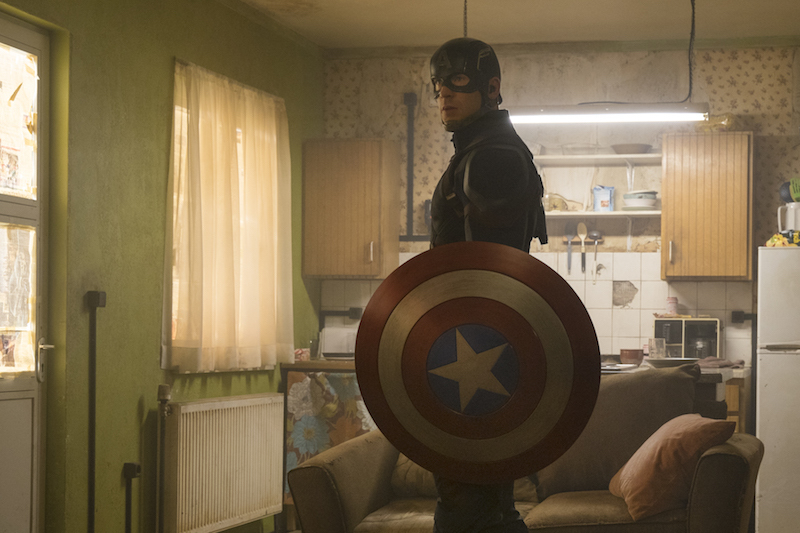
I won’t go as far as to say that everywhere Batman vs. Superman went wrong, Captain America: Civil War goes right, but it does have some notable upgrades.
Let’s start with the similarities. Both BvS and Civil War are about dueling superheroes and both deal with superhero guilt over collateral damage (someone needs to write a thinkpiece about how our collective anxiety over drone warfare has led to some seriously guilty superheroes). Both are way too long—roughly two and a half hours each (I remember the days when escapist entertainment didn’t mean you wanted to escape from the movie theater.)
And yet, Civil War manages to achieve something BvS never accomplished: It has fun. Marvel films have always found a way to serve the de rigueur self-seriousness of comic book films with a side-order of snappy wise-cracks and snark. Better still, in this case, our dueling superheroes—Captain America and Iron Man—are actually likeable guys. In BvS, they both kind of seemed like dicks.
Here’s the plot: Up until now, the Avengers have been operating without supervision and killing a lot of people along the way (although, of course, saving many more), so a joint U.N. task force has been assembled to rein them in. Tony Stark/Iron Man (Robert Downey Jr.), War Machine (Don Cheadle), Black Widow (Scarlett Johansson), and Vision (Paul Bettany) are on board with this U.N. leash, while Captain America (Chris Evans), Falcon (Sam Mackie), and Scarlet Witch (Elizabeth Olsen) are not. This divide is deepened when the Cap’s old boyhood-chum-turned-brainwashed-Hydra-soldier Bucky (Sebastian Stan) stands accused of a terrorist act. Cap doesn’t think he did it and is willing to alienate his fellow Avengers to protect him. Meanwhile, the two sides continue to grow in ranks: Cap picks up Ant-Man (Paul Rudd) and Hawkeye (Jeremy Renner), while Iron Man gets his own secret weapons—Black Panther (Chadwick Boseman), whose diplomat father was killed in the terrorist blast, and young Spider-Man (Tom Holland).
The scene where Tony Stark recruits Spidey is particularly effective. This is partly because the cynical, droll Stark is always funniest when interacting with a wide-eyed naïf (it’s one of the reasons why his bromance/rivalry with the irony-free Captain America is so appealing). This latest incarnation of Spider-Man (or “Spider Boy” as Stark calls him), feels believably younger than his grown-men-playing-a-teenager predecessors (Holland is just 19 years old)—he worries that he can’t help Stark because he has homework to finish. In an amusing twist, his Aunt May is not a homey, grandmotherly type with Kleenex up her sleeve, but a total MILF whom Stark can’t help but to hit on, probably because she’s played by Marisa Tomei. And while he’s extremely eager to impress Iron Man/Stark, Spider-Man is also utterly star-struck by everyone he’s tasked to fight, pretty much stopping to tell them he’s a huge fan right before apologetically snaring them in his web.
It’s this light-heartedness that keeps Captain America: Civil War from succumbing to the kind of pretentiousness that marred Batman V. Superman. In some ways, though, Civil War suffers from the same ills. Both films are part of the self-generating ecosystems of the D.C. Comics and Marvel “universes.” As BvS did for D.C. Comics, Civil War serves not just as its own film, but essentially as a trailer for future Marvel products (hence its extreme length). Every character with an upcoming or recent movie—Spider-Man, Black Panther, Ant-Man—gets their moment to shine, as the audience, well-trained at this point, cheers and practically throws money at the screen. The fact that Civil War is pretty good and BvS was very bad is almost irrelevant. Fans were going to lap them up anyway, cheering each superhero and laughing at each wisecrack as if responding to imaginary cue cards from some off-screen movie executive. When did movies become their own Comic Cons?
